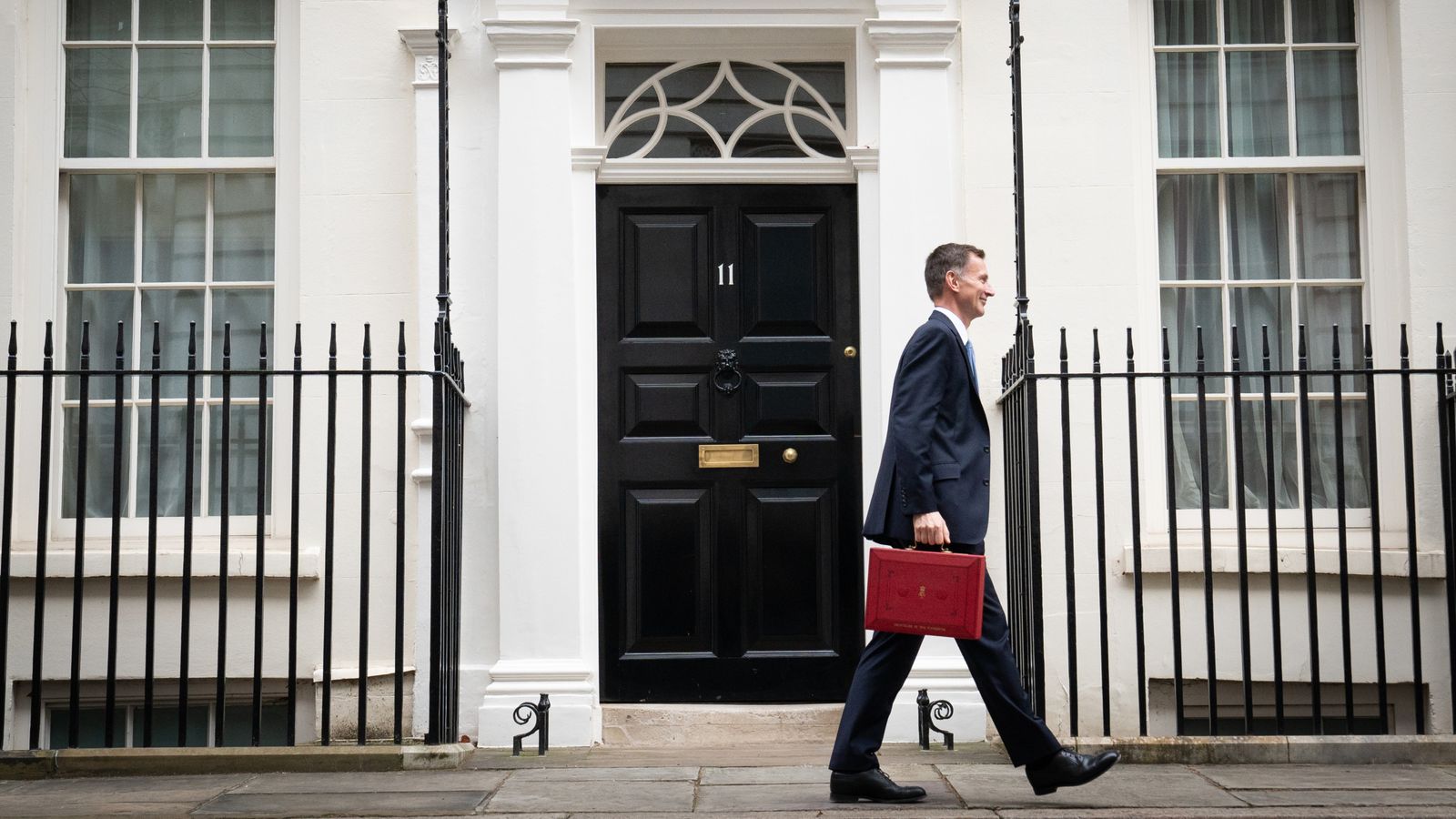Banks will be forced to give customers three months’ notice of account closures and to provide a full explanation of the reasons under reforms that could be unveiled in the coming days.
Sky News has learnt that the Treasury plans to force British lenders to be more transparent with customers amid an escalating freedom of expression row triggered by Coutts’ termination of its relationship with Nigel Farage, the former UK Independence Party leader.
Sources said the proposals, which would require secondary legislation, are likely to be announced in written ministerial statement by Andrew Griffith, economic secretary to the Treasury.
The statement is expected imminently, although one source cautioned that the timetable was yet to be signed off by 10 Downing Street.
Insiders said the Financial Conduct Authority (FCA) would need to amend its rulebook to accommodate the changes, but added that doing so would be neither onerous nor time-consuming.
The requirement for secondary, rather than primary, legislation should also shorten the timetable for implementing the changes, they added.
Bank customers would also retain their right to appeal against their lender’s decision to close an account, with the presumption that a fixed notice period and greater transparency about the reasons for the bank’s decision would facilitate a more effective appeal.
‘Absolutely disgraceful’: Tory minister attacks how Nigel Farage has been treated by Coutts bank
Nigel Farage claims Coutts bank account was shut down over his ‘values’
Nigel Farage’s bank accounts: What’s it all about, and what’s the Coutts threshold?
In limited circumstances relating to issues such as suspicions of serious criminal activity or national security, banks would still be allowed to close accounts without a full explanation, sources added.
The issue of unilateral bank account closures has become increasingly pressing since the financial crisis as lenders have sought to tighten their compliance with anti-money laundering rules, but in recent weeks it has been thrust into the spotlight by Mr Farage.
On Tuesday, he disclosed documents produced by Coutts – which is part of the taxpayer-backed bank NatWest Group – showing that his accounts had been closed because his views “do not align with our values”.
It had previously been suggested that Mr Farage had been removed as a customer for financial reasons.
It has also emerged that a number of other senior political figures, including Jeremy Hunt, the chancellor, have been denied bank accounts because of their status as politically exposed persons (PEPs).
The row prompted Mr Hunt to ask Mr Griffith to conduct an urgent review of the issue amid concerns that banks might be disenfranchising customers for ideological reasons.
“There is a real concern about the precedent that this could set,” said one insider.
In a post on Twitter on Wednesday, Mr Griffith said: “It would be of serious concern if financial services were being denied to anyone exercising their right to lawful free speech.
“Businesses have the right to protect against reputational risks – eg criminal activity – but the privilege of a banking licence in a democracy should imply a duty not to ‘debank’ because you disagree with someone’s views.”
Mr Farage wrote in Wednesday’s Daily Telegraph: “This story is not just about me.
“If this situation is left unchecked, we will sleepwalk towards a China-style social credit system in which only those with the ‘correct’ views are allowed to fully participate in society.”
A Coutts spokesperson said: “Our ability to respond is restricted by our obligations of client confidentiality.
“Decisions to close accounts are not taken lightly and take into account a number of factors including commercial viability, reputational considerations, and legal and regulatory requirements. As the client has previously confirmed, alternative banking arrangements have been offered within the wider group.”
The Treasury declined to comment.








